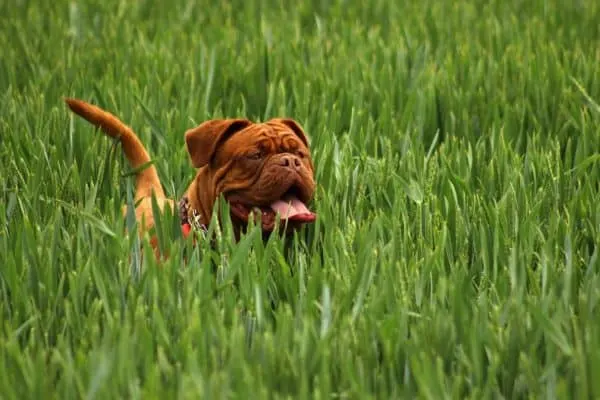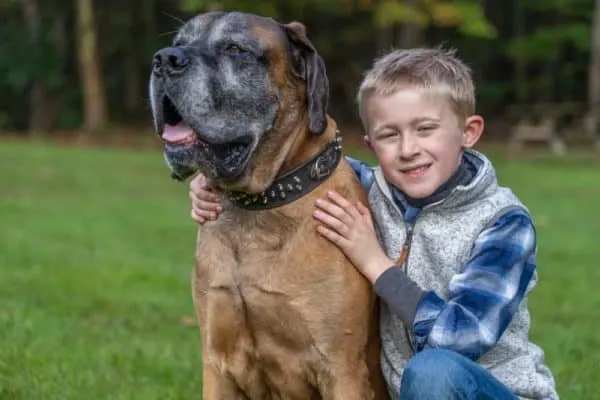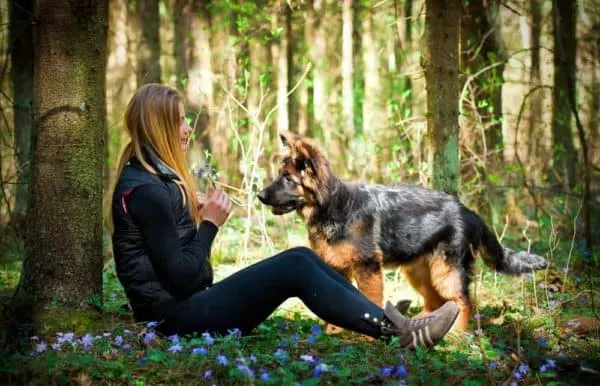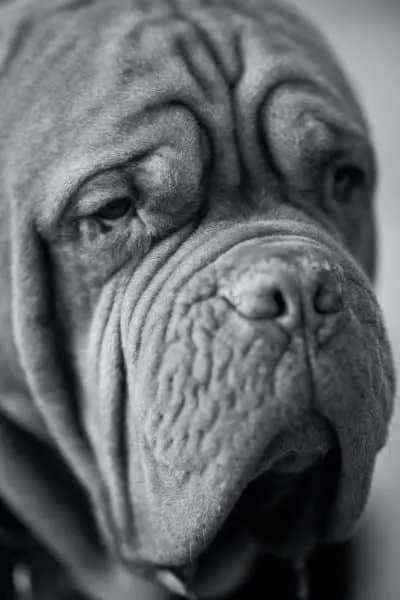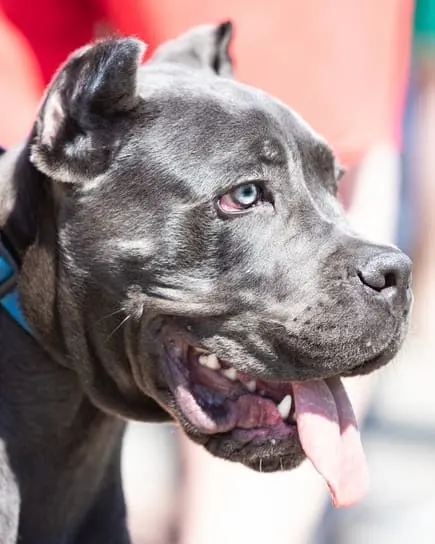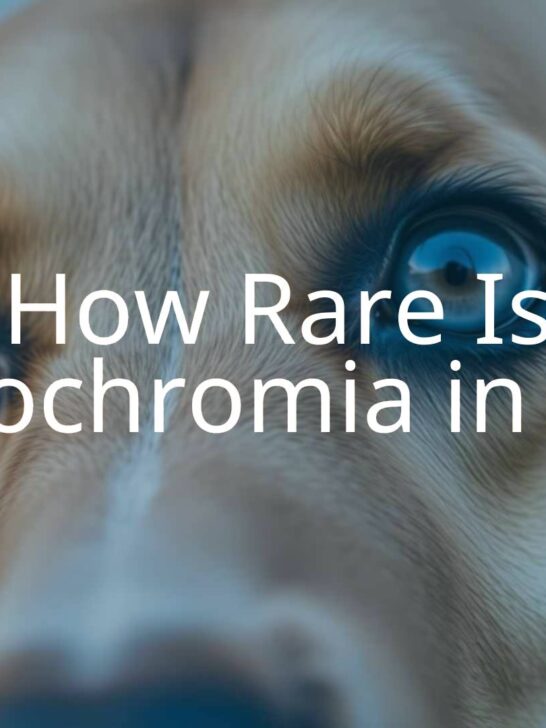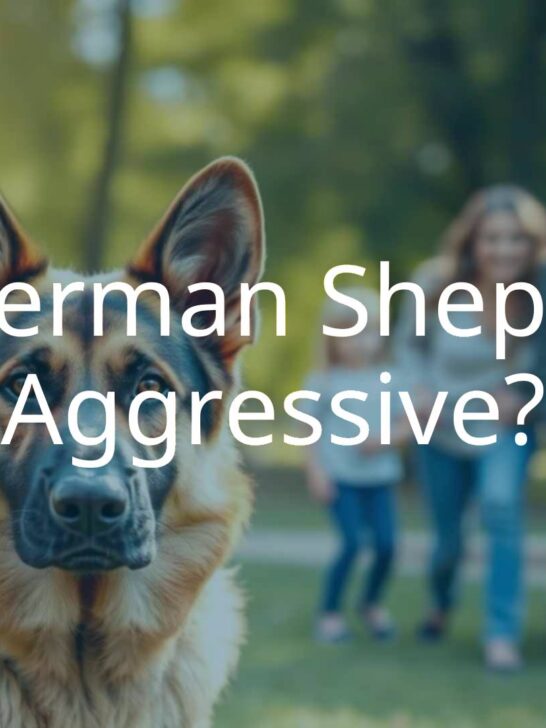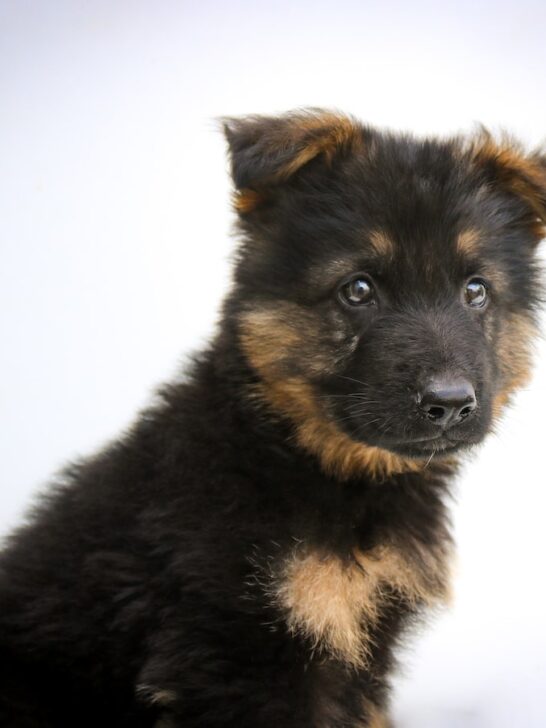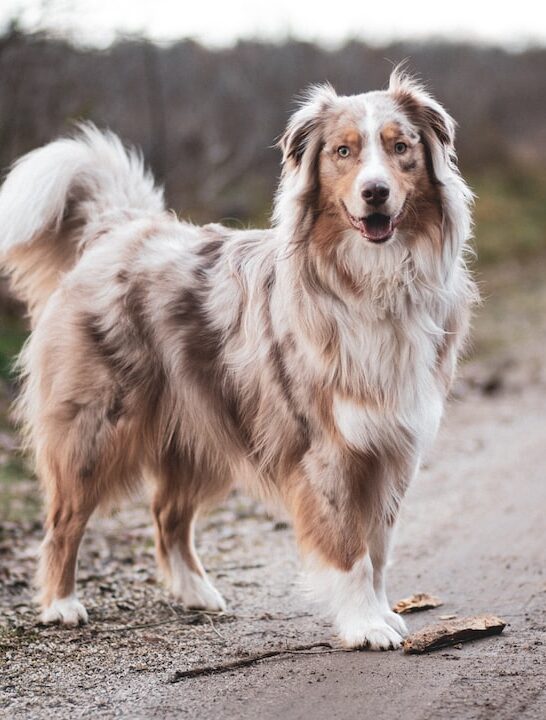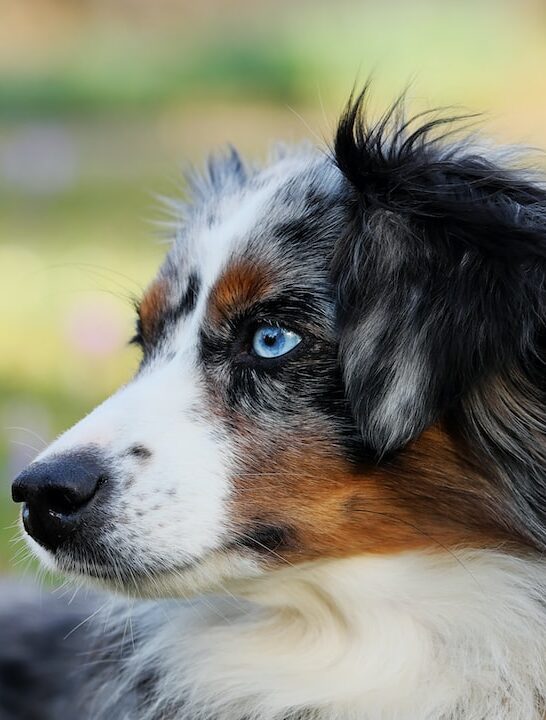German Shepherd vs Mastiff: Big or Huge Guard Dog – That Is The Question
Choosing a guard dog for your family can bring up a lot of questions.
This is a good thing, too, because you will need to think through all aspects of your new dog’s personality, temperament, training, exercise, health and enrichment needs.
This is never more true than when you are considering a choice between two iconic dog breeds, the German Shepherd vs Mastiff.
The German Shepherd, or GSD as fans call this dog, is the second most popular purebred dog in the nation (out of nearly 200 registered breeds).
The enormous Mastiff ranks 30th on that same list.
So no matter how you go about it, you have a difficult choice ahead of you.
In this article, learn what you need to know about each dog breed so you can make your decision between the German Shepherd and Mastiff from a place of knowledge and confidence.
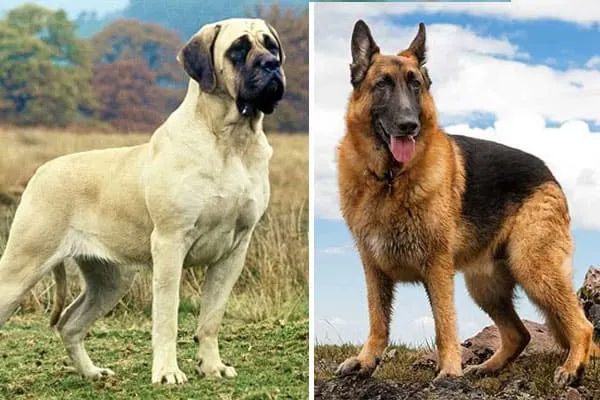
German Shepherd vs Mastiff: A Brief Breed History of Each
Learning as much as you can about the breed history of any dog you are interested in can help you narrow down your search.
Purebred dogs today have been bred for very specific reasons, whether for appearance, temperament, athleticism, drive and other traits.
The more you can understand how a dog breed has been developed, the better chance you have of choosing a breed of dog that will integrate well into your family and community.
Now let’s take a look back into the breed development for the German Shepherd vs Mastiff dog breeds.
German Shepherd dog breed history
According to the American Kennel Club (AKC), the German Shepherd today is considered the finest example of an all-around great working dog breed.
The German Shepherd was originally developed by a German man named Captain Max von Stephanitz.
Captain Stephanitz’s dream was to develop and breed the ideal herding dog.
He achieved his dream, only to watch as herding dogs became less in demand due to modern livestock farming advances.
So he reinvented the breed association and the German Shepherd became a prime choice for guarding and protection work.
Since then, the GSD has been a top pick for police, military, civilian, service, therapy and protection work throughout the world.
As an aside, German Shepherds also owe some of their notable popularity to the movie industry!
Rin Tin Tin and Strongheart are still two of the most famous German Shepherd movie dog stars.
Mastiff dog breed history
As the American Kennel Club (AKC) explains, the Mastiff dog’s astounding size is often the first and most lasting impression people have of this enormous dog.
But another fact that makes the Mastiff unique is that there are several different modern purebred mastiff dog lines, only one of which uses the capitalized name “Mastiff.”
A “mastiff” breed in the strict traditional sense is a giant dog breed with certain key characteristics inherited from ancient dogs from a specific lineage.
But there are also specific mastiff dog lines that are bred today, including the Neapolitan mastiff, the Tibetan mastiff, the Old English Mastiff (which gets to use the capitalized “M” in the breed name) and the Pyrenean mastiff among others.
The modern mastiff dog we are focusing on here in this article has been bred to be enormous and certainly very courageous and strong.
However, a lot of the breed’s ancient ferocity has been downplayed for the sake of retaining this dog’s place as a companion canine.
German Shepherd vs Mastiff: Personality and Temperament
A dog’s appearance does not always predict personality and temperament. These two traits are influenced by both genetics and training/environment.
You can have a great deal of influence over the latter but not much over the former.
So let’s learn more about the personality and temperament of the German Shepherd vs Mastiff now.
German Shepherd personality and temperament
The German Shepherd dog is incredibly smart.
According to ScienceAlert, one official test of 79 purebred dog breeds, the German Shepherd ranks as the second most intelligent dog breed.
Here, “intelligence” is measured by how quickly a dog breed can learn a new command and how reliably they will obey when that command is given.
German Shepherds are considered to be quite “vocal” as a dog breed and will use barking as a way of guarding and protecting, herding and connecting.
They can be high strung when left alone too long or only in the company of other dogs.
German Shepherds do best when they are welcomed into the daily life of their people to the fullest extent possible.
Mastiff personality and temperament
Remember that canine intelligence test the German Shepherd so excelled at?
The mastiff doesn’t fare quite so well on that same test, coming in at number 76.
But this is partly because Mastiffs have a different type of canine intelligence.
These dogs are quite quick to pick up new commands and reliable about repeating the behaviors on cue.
They just have a more laid-back temperament in general and also tend to be more sensitive emotionally to any criticism, real or perceived.
Mastiffs generally love people and just want to be wherever you are, doing whatever you are doing.
German Shepherd vs Mastiff: Size, Height and Weight
Regardless of whether you choose the German Shepherd or the Mastiff as your next companion dog, you will be adding a whole lot of dog to your family.
Size-wise, the commitment can become significant quickly. Cost-wise, the commitment can become even more significant quickly.
After all, a large or giant breed dog needs all of the same things a smaller dog needs, but the bigger items tend to cost more.
They also tend to take up a lot more room.
So it can be smart to take a step back and look at your living situation, your vehicle options, the size of your yard and other factors that may influence whether your life can support the needs of such a large dog.
It is also ideal to remember that very large dogs that are intensely people-focused like the German Shepherd and the Mastiff often don’t realize how large they truly are.
So ask yourself how you will cope when your gigantic Mastiff wants to sit on your lap on the couch or your big German Shepherd wants to crawl into bed with you at night.
Having said that, this section will give you the specifics you need to know about German Shepherd vs Mastiff height, weight, and overall size.
German Shepherd size, height, and weight
Fully grown, an adult German Shepherd will stand anywhere from 22 to 26 inches tall (paw pad to shoulder). Weight tends to range from 50 to 90 pounds.
In general, male adult German Shepherds will be taller and heavier than adult females.
Size-wise, the GSD is a long and lean dog that is all muscle.
Mastiff size, height, and weight
There are no words to adequately describe the enormity that is the fully grown adult Mastiff dog.
Adult female mastiffs can range from 120 to 170 pounds and stand 27.5 inches tall or taller (paw pad to shoulder).
And – wait for it – adult male mastiffs can easily weigh 160 to 230+ pounds and stand 30 inches tall or taller (paw pad to shoulder).
Any way you slice it, this is a whole lot of dog you will need to somehow fit into your life and your world.
Add to it that, unlike the German Shepherd, mastiffs are big-boned from tip to tail.
German Shepherd vs Mastiff: Training and Exercise Needs
Comparing the training and exercise needs of the German Shepherd vs Mastiff starts to reveal some important differences between these two purebred dog breeds.
Learning more about what each of these dogs requires to stay healthy and happy can be important in determining which dog breed may best match with your family and lifestyle.
German Shepherd training and exercise needs
German Shepherds are pure working dogs. They have been developed and bred strategically to do a job with and for people.
These dogs are used to being intensely focused “on the job” for hours and sometimes days at a time.
They are high energy and extremely athletic with tremendous natural ability.
A German Shepherd without enough exercise, play and daily activity is likely to become a bored and then a destructive dog. But a GSD with a productive, fulfilling job to do and/or lots of daily exercise and play will be a delight to have in your family.
Mastiff training and exercise needs
As a giant dog breed, Mastiffs have lower daily energy levels and activity needs than do large breeds like the GSD.
The mastiff puppy, in particular, needs to be restrained from over-exertion, which can cause damage to their extremely large, fast-growing frame.
As adults, mastiffs can do perfectly well with one or two energetic walks per day and some daily home playtime.
Otherwise, they are usually content to enjoy laying on the couch and following you around the house.
Ironically, this makes mastiffs a much better choice for living in small spaces than their size might suggest!
German Shepherd vs Mastiff: Health and Longevity
Health and longevity have become a very real issue for many purebred dog breeds today.
This is due in part to focused breeding programs that prioritize appearance over health.
But if you know what research to do and how to choose a dog breeder to work with, you can take some proactive steps to choose the healthiest possible German Shepherd or Mastiff puppy.
For rescue dogs, the best approach is to have your veterinarian examine any dog you are thinking about adopting.
In any area where there is a real concern, genetic health testing can also help you decide whether to adopt a dog.
This is important because some of the health issues purebred German Shepherds and Mastiffs can inherit can be extremely expensive to treat as well as emotionally wearing.
German Shepherd health and longevity
German Shepherds have a relatively short life expectancy of very large and giant dog breeds.
The average longevity for a purebred GSD is between seven and 10 years.
The Orthopedic Foundation for Animals maintains a database called the Canine Health Information Center, or CHIC.
This is a voluntary database breeder can contribute to by registering their breeding dogs and sharing genetic testing results.
For the German Shepherd dog, the CHIC database states that the following health issues can be detected through pre-testing parent dogs before breeding:
- Hip dysplasia.
- Elbow dysplasia.
- Cardiac issues.
- Eye issues.
- Autoimmune thyroiditis.
- Degenerative myelopathy.
- Temperament test.
Mastiff health and longevity
Mastiffs have an even shorter average life expectancy than do German Shepherds. Their average life span ranges from six to 10 years.
For the Mastiff dog, the CHIC database states that the following health issues can be detected through pre-testing parent dogs before breeding:
- Hip dysplasia.
- Elbow dysplasia.
- Cardiac issues.
- Eye issues.
- Autoimmune thyroiditis.
- Cystinuria.
German Shepherd vs Mastiff: Which Is Best for Families With Kids?
While the German Shepherd is a more popular purebred dog than the Mastiff overall, the Mastiff is a better choice for families with kids in some ways.
Both the GSD and the mastiff will guard you and your family with care and vigilance.
But the mastiff will need less of your time for work, exercise, and play, which may ease some of the daily workloads for busy families with small kids.
German Shepherd vs Mastiff: Which Dog Breed Is the Right Choice for You?
When comparing the German Shepherd vs Mastiff, some clear similarities and differences emerge.
Which one of these popular and wonderful big dog breeds is likely to be the best fit for you and your family?














